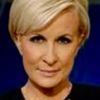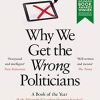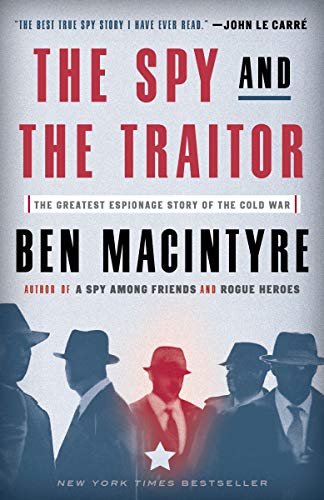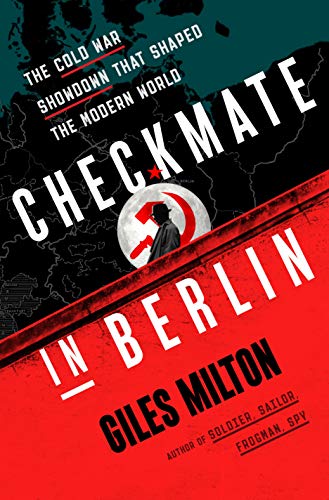15 Cold War Books That Separate Experts from Amateurs
Recommended by Pulitzer winners John Lewis Gaddis, Mika Brzezinski, and Isabel Hardman for rich insights into Cold War history




What if you could understand the Cold War not just as a distant geopolitical conflict but as a living saga of strategies, secrets, and human drama? This era shaped much of the modern world — its shadows still ripple through today's global politics. From brinkmanship to espionage, the Cold War's complexity demands more than surface-level history.
John Lewis Gaddis, a Pulitzer Prize-winning historian, credits The Peacemaker for reshaping his view of Reagan's role, revealing the subtle diplomacy behind the Cold War's peaceful end. Meanwhile, Mika Brzezinski, a seasoned journalist, found Saving Freedom invaluable for grasping Truman's political resolve that set the Cold War's stage. And Isabel Hardman, known for her sharp political insight, praises The Spy and the Traitor for its gripping portrayal of espionage's human stakes.
While these expert-curated books provide proven frameworks, readers seeking content tailored to their specific interests, such as espionage tactics, leadership strategies, or cultural history, might consider creating a personalized Cold War book that builds on these insights.
Recommended by John Lewis Gaddis
Pulitzer Prize-winning author and grand strategy expert
“William Inboden’s The Peacemaker makes the strongest case yet for Reagan as a successful grand strategist. Clearly written, thoroughly researched, full of fresh information, this comprehensive account will shape all future studies of the role the United States played in ending the Cold War.” (from Amazon)
by William Inboden··You?
by William Inboden··You?
Drawing from his extensive background in national security and public policy, William Inboden presents a detailed narrative of Ronald Reagan's Cold War presidency that challenges conventional views of the era. You gain insight into the intricate balance Reagan struck between military strength and diplomatic outreach, as well as the internal dynamics of his national security team. Chapters exploring the arms race strategy and Reagan's ideological commitment to democracy reveal how these shaped the peaceful end of the Cold War. This book suits those interested in presidential history, strategic diplomacy, and the geopolitical shifts of the 1980s, offering a nuanced picture rather than a simple triumphalist tale.
Recommended by Mika Brzezinski
Co-host of MSNBC's Morning Joe
“So proud of Joe — His great book is now out in paperback!!!!” (from X)
by Joe Scarborough··You?
by Joe Scarborough··You?
Drawing from his unique vantage point as a former congressman and political commentator, Joe Scarborough offers a detailed look at Harry Truman's unexpected rise to leadership during the dawn of the Cold War. You’ll gain insight into the pivotal 1947 moment when Truman shifted U.S. foreign policy from isolationism to active containment of Soviet expansion, a decision that shaped global politics for decades. Chapters explore the intricate bipartisan effort needed to rally support, revealing the political grit behind the Truman Doctrine. This book suits anyone seeking a nuanced understanding of American leadership and Cold War diplomacy, though those looking for a broader Cold War military history might find it narrower in scope.
by TailoredRead AI·
by TailoredRead AI·
This tailored exploration of Cold War history delves deeply into the complex strategies, political maneuvers, and global tensions that defined this pivotal era. It carefully examines the interplay of diplomacy, espionage, and military posturing, weaving together narratives that align precisely with your interests and background. By focusing on your specific goals, the book reveals nuanced perspectives on key figures and events, providing a rich understanding that goes beyond broad overviews. The personalized content guides you through the labyrinth of Cold War dynamics, making sense of intricate policies and secret operations with clarity and depth. This approach allows you to absorb expert knowledge in a manner that suits your learning style and curiosity.
Recommended by Isabel Hardman
Assistant Editor, The Spectator; Radio 4 presenter
“Oh it’s a brilliant book isn’t it. Another one I was sad to finish.” (from X)
by Ben Macintyre··You?
Ben Macintyre draws on decades of experience as a writer-at-large for The Times of London to craft a vivid narrative that plunges you into the shadowy world of Cold War espionage. You’ll follow Oleg Gordievsky, a KGB officer turned British asset, whose intricate double life reveals the inner workings of Soviet intelligence and the high stakes of international spycraft. The book offers detailed insight into Gordievsky’s covert operations, the paranoia within the KGB, and the tense geopolitical climate leading up to the Cold War’s end. If you’re intrigued by intelligence history or the personal costs of espionage, this story combines thrilling storytelling with a sharp examination of Cold War dynamics.
Recommended by Patrick Radden Keefe
New York Times bestselling author
“In this sweeping, vivid, beautifully observed book, Scott Anderson unearths the devastating secret history of how the United States lost the plot during the Cold War. By focusing on the twisty, colorful lives of four legendary spies, Anderson distills the larger geopolitical saga into an intimate story of flawed but talented men, of the 'disease of empires,' and of the inescapable moral hazard of American idealism and power. It's a hell of a book, with themes about the unintended consequences of espionage and interventionism that still resonate, powerfully, today.” (from Amazon)
by Scott Anderson··You?
by Scott Anderson··You?
Drawing from his extensive experience as a veteran war correspondent and acclaimed author, Scott Anderson chronicles the complex early years of the CIA during the Cold War through the intertwined lives of four agents. You gain insight into the shadowy world of espionage and psychological warfare, exploring how ambition and ideology often clashed with reality, leading to unintended consequences for American foreign policy. Chapters detail Michael Burke’s parachute commando operations in Italy and Edward Lansdale’s psychological campaigns in Asia, revealing the human flaws behind high-stakes spycraft. If you seek a nuanced view of Cold War intelligence and its moral ambiguities, this book offers a richly detailed, character-driven narrative that challenges simplistic heroic portrayals.
Recommended by The New Yorker
“[Ben] Macintyre at once exalts and subverts the myths of spy craft.” (from Amazon)
by Ben Macintyre··You?
by Ben Macintyre··You?
Ben Macintyre, a seasoned writer-at-large for The Times (U.K.), explores the life of Ursula Burton, a Soviet colonel and master spy known as "Agent Sonya." Through meticulous research including Sonya's diaries, the book reveals how she orchestrated espionage across Europe during the Cold War, evading MI5, the FBI, and more. You gain insight into the complex ideological battles of the era, including how scientific secrets shaped global power dynamics. This book suits anyone interested in espionage history and the human stories behind geopolitical tensions, presenting a nuanced picture without glorifying or demonizing its protagonist.
by TailoredRead AI·
This tailored book explores the intricate world of Cold War espionage with a sharp focus on step-by-step spycraft strategies from that tense era. It examines classic tactics and covert operations, offering a personalized learning path that matches your interests and background. By combining historical insights with carefully selected case studies, it reveals how espionage shaped global events and influenced intelligence tradecraft. This tailored guide dives deep into the methods spies used to gather intelligence, conduct surveillance, and execute covert missions, all crafted to align with your specific goals. It offers an engaging, focused exploration that brings Cold War spycraft vividly to life for you.
Recommended by Timothy Snyder
Author of 'On Tyranny'
“For generations, the Cold War was context, the inescapable setting of political life. This history sets the Cold War itself in context, within the greater landscape of world history, deeply understood, and masterfully presented. It is a powerful synthesis by one of our great historians.” (from Amazon)
by Odd Arne Westad··You?
by Odd Arne Westad··You?
Unlike most Cold War histories that focus narrowly on superpower rivalry, Odd Arne Westad's book expands the narrative to a global ideological confrontation rooted in the Industrial Revolution. You learn how the Cold War shaped regions far beyond Europe, influencing political, social, and economic landscapes in Asia, Africa, and the Middle East, with effects still felt today. Westad, a Yale professor and Bancroft Prize winner, integrates political, economic, and cultural perspectives, exploring topics like ideological battles and their modern legacies. This book suits you if you want a world-encompassing understanding of the Cold War’s complexity and its lasting impact on contemporary conflicts and global power dynamics.
Recommended by Dame Stella Rimington
Former Director of MI5
“Intriguing true stories of the techniques of CIA spying on the dangerous front line of the Cold War.” (from Amazon)
by Antonio J. Mendez, Jonna Mendez··You?
by Antonio J. Mendez, Jonna Mendez··You?
Drawing from decades of undercover experience, Antonio and Jonna Mendez reveal the high-stakes world of CIA operations during the Cold War's most perilous era. You gain insight into the ingenious tactics crafted to outwit relentless KGB surveillance, including disguise techniques and covert gadgetry that feel straight out of a spy thriller. Chapters detailing the "Moscow Rules" provide specific frameworks operatives used to stay one step ahead, making this a unique blend of espionage memoir and tactical manual. This book suits anyone fascinated by spycraft or Cold War history, though its detailed tradecraft may challenge casual readers.
Recommended by Michael McFaul
Professor and former U.S. Ambassador
“I literally just ordered today Benn Steil's The Marshall Plan, which I've been told by people I trust is the best new book on this subject. Amazing coincidence, but I was watching the 5-minute video on Amazon on the book today.” (from X)
by Benn Steil··You?
by Benn Steil··You?
Unlike most Cold War histories that focus narrowly on military and political confrontations, Benn Steil’s account draws heavily on his expertise as an economist at the Council on Foreign Relations to illuminate the economic strategies underpinning the Marshall Plan. You’ll gain a nuanced understanding of how this ambitious program reshaped postwar Europe through mechanisms like the European Payments Union and counterpart funds, revealing the interplay between economic policy and geopolitical strategy. Chapters detailing the Berlin blockade and the Prague coup offer vivid insights into the high-stakes tensions of 1947-49. If you’re interested in the economic foundations of Cold War diplomacy and the birth of modern Western institutions, this book provides thorough, well-researched perspectives that deepen your grasp of the era.
Recommended by Nick Gillespie
Editor at Large, Reason Magazine
“"Freedom was the slogan of the times. The word was invoked to justify everything." Great Reason interview podcast with Harvard's Louis Menand about his fantastic book The Free World, discussing post-WW2 culture including Kerouac, Baldwin, Warhol, Sontag et al.” (from X)
by Louis Menand··You?
by Louis Menand··You?
The breakthrough moment came when Louis Menand, a Pulitzer Prize-winning Harvard professor, sought to unravel how art and ideas shaped America's postwar identity. You gain a detailed understanding of cultural shifts from abstract expressionism to the civil rights movement, packed with vivid examples like Hannah Arendt’s Manhattan circle and Elvis Presley's Memphis studio. Chapters explore how “freedom” was wielded politically and culturally during the Cold War, illuminating connections between philosophy, music, and politics. This book suits anyone curious about how intellectual and artistic currents influenced Cold War America beyond mere geopolitics.
Recommended by John Sipher
Former CIA Clandestine Service officer
“@michaeldobbs Great book” (from X)
by Michael Dobbs··You?
Drawing from decades as a Washington Post foreign correspondent, Michael Dobbs offers a gripping hour-by-hour account of the Cuban missile crisis that brought the world to the brink of nuclear war. You’ll gain insight into the tense negotiations between Kennedy, Khrushchev, and Castro, understanding the covert maneuvers and close calls that nearly triggered catastrophe. Dobbs’s narrative, grounded in newly uncovered American, Soviet, and Cuban sources, reveals surprising details like Khrushchev’s plans against Guantánamo and CIA operations inside Cuba. If you want a vivid, deeply sourced view of Cold War brinkmanship, this book sheds light on the human decisions behind the historical headlines.
Recommended by Andrew Adonis
Labour peer, former Transport Secretary
“Today’s book by Giles Milton. The determination of Ernie Bevin, Labour’s great postwar Foreign Secretary, to prevent Stalin advancing into west Germany and then Western Europe was the critical backdrop to the successful defence of West Berlin after 1945” (from X)
After analyzing the tangled aftermath of World War II, Giles Milton found a gripping narrative in the power struggles over Berlin that ignited the Cold War. Drawing on vivid accounts of ruined streets and brutal political maneuvering, he unpacks the intense rivalry among British, American, French, and Soviet leaders fighting for control. You’ll gain insight into how personalities like Ernie Bevin shaped geopolitics and how secret operations, including the famed Berlin Airlift, defined Western resolve. This book suits anyone looking to understand the pivotal early conflicts that shaped modern international relations and the Cold War’s origins.
Recommended by Blake Hounshell
Editor in chief, POLITICO Magazine
“Interesting story by @mike_giglio on how Trump officials are reading a years-old book on Reagan's anti-Soviet strategy to develop their Iran policy” (from X)
by Peter Schweizer··You?
Peter Schweizer, a seasoned investigative journalist and bestselling author known for his deep dives into political finance and government transparency, turns his attention to Cold War history with this focused examination of the Reagan administration's covert economic strategies against the Soviet Union. You’ll uncover how specific policies and secret campaigns increased pressure on the Soviet economy, contributing to its eventual collapse, with detailed accounts revealing behind-the-scenes maneuvering. This book suits those interested in political strategy, Cold War history, and the interplay between economic tactics and international relations, offering insights into how economic stress translated into geopolitical change.
Recommended by John Sipher
Former CIA Clandestine Service officer
“Great book. It shows how little Russian espionage has changed.” (from X)
by Trevor Barnes··You?
Drawing from his deep research into espionage and the CIA’s early days, Trevor Barnes presents a gripping narrative that immerses you in one of the Cold War’s most clandestine spy rings. You’ll uncover the intricate web of deception surrounding the Portland Spy Ring, including detailed accounts of key figures like Gordon Lonsdale and the Kroger couple, whose double lives spanned continents. Barnes’ storytelling takes you through newly released archives and insider sources, revealing how international intelligence agencies tracked and ultimately exposed this KGB operation. If you’re fascinated by spycraft, political intrigue, and Cold War history, this book provides a clear window into the secretive world of Cold War espionage without romanticizing it.
Recommended by Michael Mcfaul
Stanford professor and former US ambassador
“+1 ! Great book (from my former student).” (from X)
by Nicholas Thompson··You?
by Nicholas Thompson··You?
What started as a family legacy became a nuanced exploration of Cold War dynamics through the lives of Paul Nitze and George Kennan. Nicholas Thompson, drawing from his unique perspective as Nitze's grandson and his journalistic expertise, unpacks the contrasting strategies of these two pivotal figures: Nitze's belief in preparing for nuclear war to prevent it, and Kennan's diplomatic approach of containment and patience. You gain insight into the personal and political interplay that shaped U.S. foreign policy across four decades, with vivid accounts of their friendship amid ideological battles. This book suits anyone wanting a deep dive into Cold War strategy and the personalities behind it, especially those intrigued by historical biography and policy history.
Recommended by Katrina Vandenheuvel
Editor and Publisher of The Nation magazine
“For a brilliant, must read book...Archie Brown Is Awarded the Pushkin House Book Prize” (from X)
Drawing from decades as a politics professor at Oxford, Archie Brown challenges the typical narrative that the Cold War ended solely due to Western economic and military superiority. Instead, he examines the personalities and evolving perceptions of Gorbachev, Reagan, and Thatcher, revealing how their leadership styles and interactions reshaped East-West relations in the 1980s. You’ll gain insight into the nuanced political dynamics and unexpected alliances that influenced the Cold War’s thaw, with detailed chapters exploring Thatcher’s surprising role as an intermediary. This book suits anyone seeking a deeper understanding of political leadership’s impact on global history rather than a straightforward military or economic analysis.
Get Your Personal Cold War Strategy Guide ✨
Stop following generic advice. Get tailored Cold War insights in 10 minutes.
Trusted by historians and Cold War scholars worldwide
Conclusion
These 15 books reveal the Cold War as a multifaceted conflict of ideology, espionage, diplomacy, and culture. They highlight how leadership styles, covert operations, and economic strategies intertwined to shape a world on edge.
If you're exploring leadership impact, start with The Human Factor and Saving Freedom for nuanced political portraits. For rapid immersion in espionage, combine The Spy and the Traitor with The Moscow Rules to grasp spycraft from both sides. Meanwhile, The Cold War by Westad offers a broad global perspective for connecting Cold War legacies to current events.
Alternatively, you can create a personalized Cold War book to bridge the gap between general principles and your specific situation. These books can help you accelerate your learning journey and gain a richer understanding of a pivotal era.
Frequently Asked Questions
I'm overwhelmed by choice – which book should I start with?
Starting with The Peacemaker offers a clear window into Cold War diplomacy through Reagan's presidency, providing a strong foundation before exploring espionage or economic aspects.
Are these books too advanced for someone new to The Cold War?
No, many books like Saving Freedom and The Spy and the Traitor are written with engaging narratives that welcome beginners while offering depth for experienced readers.
What's the best order to read these books?
Begin with broad overviews such as The Cold War by Westad, then explore specific themes like leadership (The Human Factor) or espionage (The Spy and the Traitor), depending on your interests.
Do I really need to read all of these, or can I just pick one?
You can pick one to start, but combining books from different angles—political, espionage, cultural—provides a fuller picture of the Cold War’s complexity.
Are any of these books outdated given how fast The Cold War changes?
The Cold War is historical, so these books remain relevant for understanding its events and legacies, with many drawing on recently declassified sources for fresh insights.
How can I get Cold War insights tailored to my interests without reading multiple full books?
While these books provide expert knowledge, you can create a personalized Cold War book that blends expert frameworks with your specific focus areas for efficient, targeted learning.
📚 Love this book list?
Help fellow book lovers discover great books, share this curated list with others!
Related Articles You May Like
Explore more curated book recommendations














